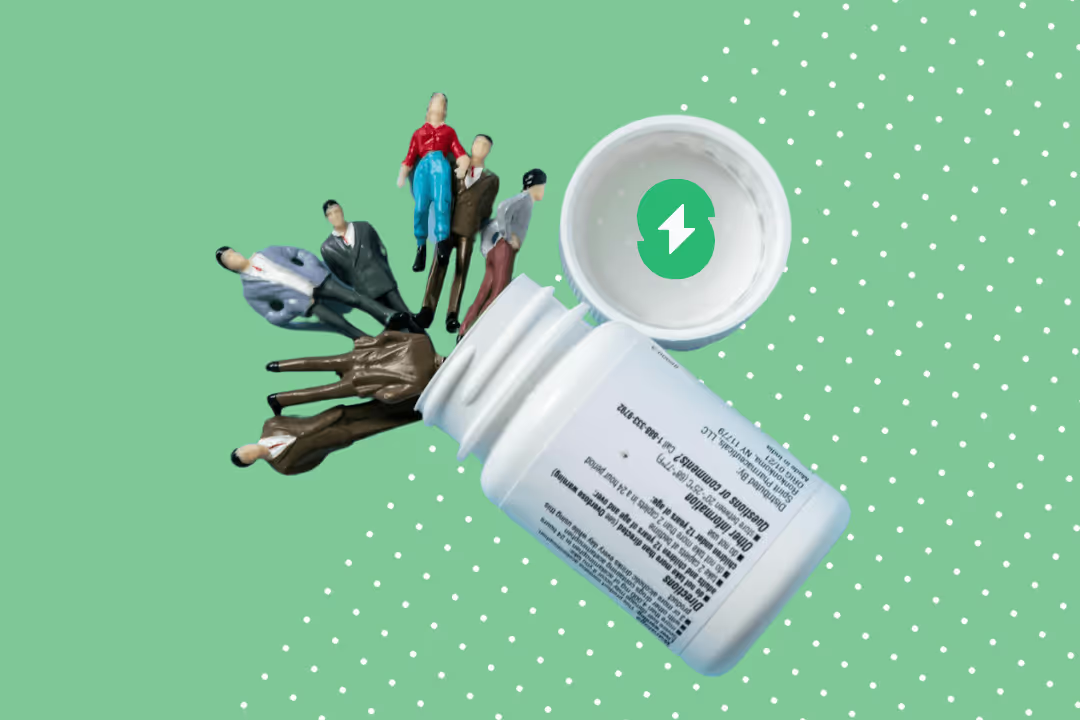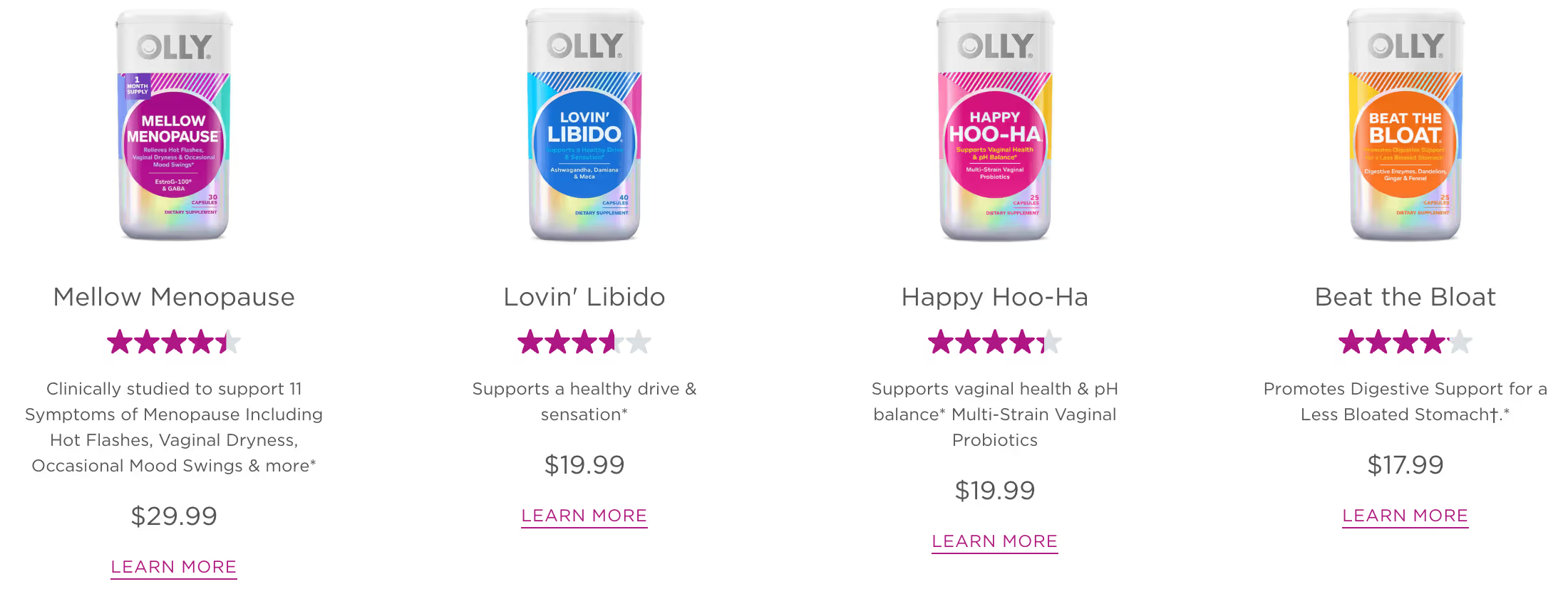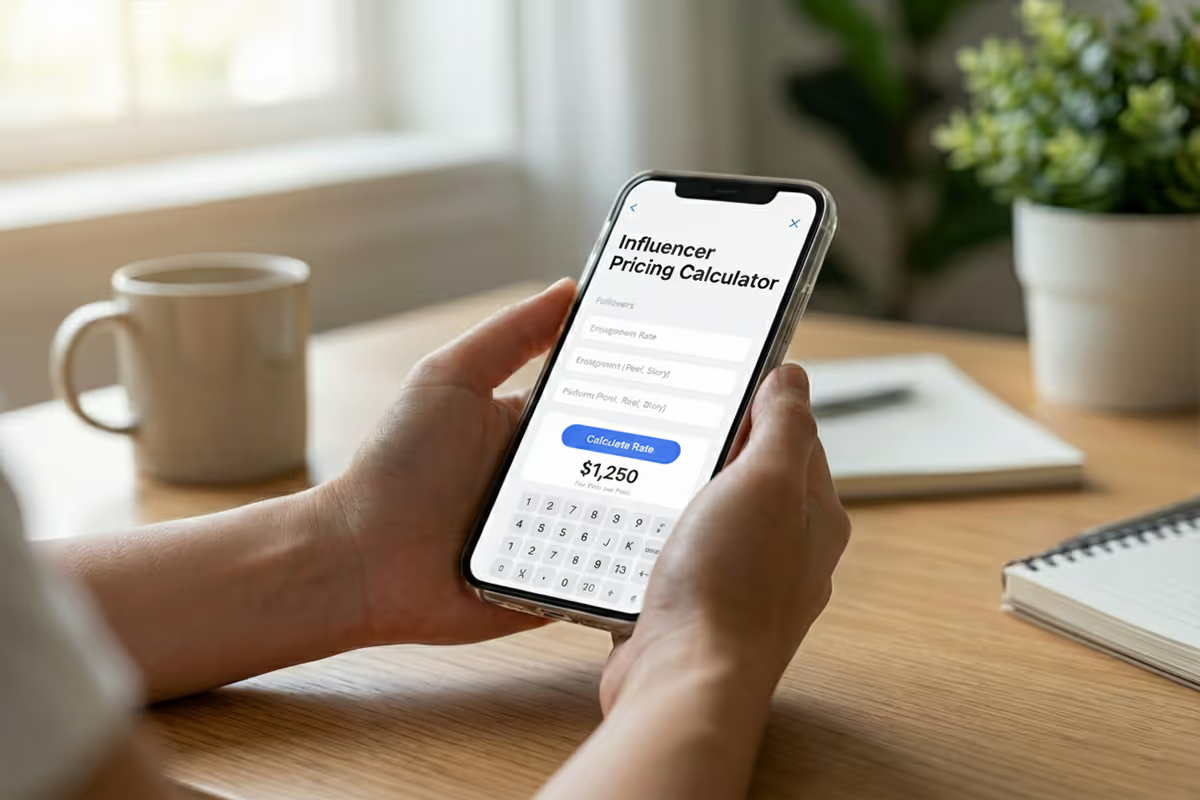
In the crowded world of wellness supplements, your product is only as good as the story it tells.
Branding and packaging are your private-label supplement company’s ultimate tools to stand out, build trust, and create loyal shoppers.
Whether you’re selling private-label supplements or looking to start a supplement business, your brand needs to outshine the competition. A strong marketing strategy ensures that your products capture attention and resonate deeply with your target market.
Whether it’s caffeine gummies for athletes or brain power-boosting vitamins for busy professionals, your branding can turn private-label supplements into standout products.
Ready to dive into the ABCs of effective supplement branding? Let’s go!
Why supplement branding matters for your business
The global dietary supplements market is projected to grow from $93.46 billion in 2024 to $182.52 billion by 2032. The weight-loss supplement industry’s booming demand makes it a high-reward market with big profit margins. But it also signals that it’s a competitive business to be in.
Stand out in a crowded supplement market
Blending in is a surefire way to get lost in a sea of dietary supplements. If your company looks, sounds, and feels like every other brand on the shelf, why would customers choose you?
Differentiation helps you:
- Attract attention. Unique branding catches the eye of potential customers.
- Build loyalty. A strong brand identity creates emotional connections.
- Justify your price. Consumers are willing to pay more for a special and trustworthy product.

Failing to differentiate means blending into the background. Customers will pick a cheaper or more recognizable brand, leaving you to fight for scraps in a market that rewards uniqueness.
Build trust to grow your own supplement business
Trust is the cornerstone of a successful supplement business. From misleading claims to subpar products, consumers have learned to approach new brands cautiously.
- Ingredients. Customers want to know what they’re putting into their bodies, and brands that openly share their sourcing, manufacturing, and quality standards are likelier to win them over.
- Social proof. People trust people, and showcasing real customer reviews, testimonials, and success stories can significantly enhance your brand’s reputation.
- Third-party validations. Certifications and endorsements from reputable organizations can also bolster trust. Displaying FDA compliance, third-party testing results, or certifications like NSF or USP adds layers of credibility to your brand.

Once you establish trust, retaining customers and encouraging repeat purchases is easier. Loyal customers not only buy more—they also become advocates, spreading the word about your brand and further enhancing its credibility.
Understanding your audience
Knowing who your ideal customers are—and what challenges they face—helps you create products and messaging that truly resonate. By tapping into their lifestyles and needs, you can build stronger connections and differentiate your brand in a crowded market.
Target customer pain points, not dream profiles
Focusing on real customer lifestyles and pain points delivers better results than chasing an idealized "dream customer." Think "men in their 30s that work out" vs "men that need extra kick of energy before their workout."
Targeting consumer pain points is about meeting your audience where they are and addressing their actual challenges.

For example, athletes often need a steady energy boost without the jitters from traditional energy drinks. A brand offering slow-release caffeine gummies could appeal to this niche by solving a specific problem that competitors overlook.
This approach not only makes your product more relevant but also builds loyalty. By identifying and solving these pain points, your supplement business becomes a trusted part of your customers’ routines—whether it’s helping them power through workouts or maintain focus throughout the day.
Research tools to create better supplement branding
Mining customer reviews is a goldmine for understanding what your audience loves or hates about existing products. Look for recurring themes in feedback, such as complaints about taste, ease of use, or effectiveness. These insights can guide your product development and branding to address unmet needs.
Social media and Reddit are equally valuable tools. Platforms like Reddit reveal unfiltered opinions, while social media comments show how consumers interact with brands.

Competitor reviews provide a roadmap for what works and what doesn’t in your niche. Together, these tools help you refine your strategy and build a supplement brand that stands out.
Defining your supplement business mission and identity
Your business mission and identity are the backbone of your supplement company. They guide your decisions, shape your branding, and communicate your purpose to the world. A clear mission helps you stay aligned with your goals while also resonating with your audience—showing them not just what you sell, but why it matters to them.

Starting with your why
Every successful own supplement company starts with a strong "why." Why does your product exist, and what problem does it solve?
Your mission should go beyond making sales and instead focus on creating meaningful value for your ideal customers. Whether it’s helping athletes recover faster or empowering busy professionals to prioritize wellness, your purpose drives everything. A clear business plan aligned with your brand's goals ensures your vision resonates with your audience.
For example, Goli Nutrition redefined the dietary supplements market by transforming apple cider vinegar into tasty, convenient gummies. Their mission to make wellness simple and enjoyable has resonated deeply with customers, creating a trusted brand identity that stands out in the supplement world while addressing a common health challenge.

Connecting your mission to your customers’ values is essential. Today’s buyers want more than just a product—they seek a shared vision. When your own supplement company reflects their lifestyles and aspirations, it feels personal, relatable, and trustworthy. Use your website to tell your story and show how your business aligns with their needs. This connection transforms casual shoppers into loyal advocates who frequently return to your website for their favorite products.
Building a lifestyle-focused brand identity
A lifestyle-focused brand identity helps your supplement company become part of your customers’ daily lives. By understanding their habits, aspirations, and health concerns, you can craft messaging and visuals that feel tailor-made for them.
Ritual, for example, focuses on women’s health and empowerment, weaving its minimalist design and evidence-based claims into a brand identity that feels trustworthy and relatable to modern, health-conscious women. They also leverage social media to showcase how their products seamlessly fit into everyday routines, reinforcing their message and engaging their target audience.

Lifestyle traits add depth to your branding, making it more than just a logo or tagline. When you decide on key elements of your brand, consider how your product integrates into customers’ lives. Ritual’s transparent capsules and clean, aesthetically pleasing bottles are designed to fit effortlessly into routines—whether placed on a bathroom shelf or included in a daily Instagram story.
By reflecting their customers’ values of clean living and self-care, Ritual has built a strong emotional connection, fostering loyalty and outpacing the competition. Thorough research into your audience’s needs and lifestyles helps you decide on the elements that truly resonate with the target market.
Packaging design tips for a successful supplement company
Packaging isn’t just about aesthetics—it’s a strategic tool that can elevate your brand, capture attention, and convert first-time buyers into loyal buyers. Thoughtfully designed labels are a powerful way to communicate your product’s value while reinforcing trust with your target market.

Make a great first impression with your supplement branding
Packaging plays a decisive role in buying decisions. Within seconds, it conveys your product’s value, quality, and relevance to the buyer’s needs. Here are three cornerstones of effective product labels:
- Clarity. Highlight the product name and key benefits prominently.
- Credibility. Use FDA-compliant claims and transparent ingredient lists.
- Visual appeal. Choose colors, typography, and imagery that reflect your brand and resonate with your audience.

The right product label design ensures your marketing efforts extend to every touchpoint—both online and in-store.
Functional and aesthetic supplement packaging ideas
Striking the right balance between beauty and practicality ensures your packaging isn’t just eye-catching but also user-friendly.
- Minimalist designs emphasize simplicity, appealing to shoppers who value clean and professional aesthetics (e.g., Ritual).
- Quirky and fun designs use playful graphics and bright colors to connect with younger, trend-savvy audiences (OLLY Nutrition is a prime example).
- Bold typography grabs attention and shows confidence, perfect for positioning your product as a standout choice (AG1 uses this effectively).Your marketing efforts can benefit greatly from labels that blend practicality with standout designs, making your product label a true ambassador for your brand.

Design labels that reflect your brand values
Tailoring your labels to your audience is key to standing out in the wellness business industry. Athletes may prefer sleek, performance-driven designs, while wellness enthusiasts lean toward soothing, organic aesthetics. Essential elements include compliance, readability, and creativity to ensure success in connecting with your audience.

When starting your own supplement business, your product label must do more than just look good—it must help you establish a unique presence in the market. A well-crafted label communicates your brand’s mission and values, giving you a strategic edge over the competition.
While trendy supplement designs can draw attention, always decide on elements that resonate with your target audience and help ensure success in building trust.
Whether it’s highlighting benefits on your website or using your labels as a tool to sell your story, your design is a vital piece of your commerce sales strategy.

A strong product label isn't just a detail—it’s a necessity to effectively sell in a competitive industry.
Legal compliance tips for labels and packaging
Navigating the legal issues around vitamin labels is critical to protecting your business and ensuring you can successfully sell your products. Complying with FDA guidelines not only safeguards your brand but also builds trust with buyers.
Here’s a cheat sheet to help you create FDA-compliant labels and avoid potential pitfalls when meeting FDA requirements.
- Stick to “structure/function” language
The FDA prohibits supplement companies from making unapproved disease claims, such as “cures arthritis” or “treats diabetes.” Instead, focus on structure/function claims that highlight how the product supports normal body functions. Example: Say “supports joint health” instead of “relieves arthritis pain.” This approach not only helps you sell effectively but also keeps you clear of potential legal issues. - Include mandatory label elements
Every supplement label must include the following:- Product name. Clearly describe the dietary supplement (e.g., “Vitamin C Gummies”).
- Net quantity of contents. Display the amount of product in the package.
- Supplement facts panel. Provide serving size, ingredient list, and nutritional information.
- Manufacturer’s information. Include the name and location of your company.
- Directions for use. Specify how to take the product safely.
- Be transparent about your ingredients
Transparency is crucial for both compliance and buyer's trust.- List all active and inactive ingredients in descending order by weight.
- Disclose allergens or additives.
- Partner with a reputable provider like Supliful for clear ingredient documentation to avoid errors and other legal mishaps.

Ensuring your labels meet these standards is essential to sell confidently in the market and address key legal issues before they arise. By crafting clear, accurate, and FDA-compliant labels, you’ll protect your business, foster customer confidence, and ensure you can sell successfully in the competitive supplement industry.
Branding is everything
Your supplement branding is more than just visuals—it tells your story, communicates your values, and sets you apart from the competition. A strong brand backed by thoughtful packaging creates trust, attracts loyal customers, and lays the groundwork for long-term success.
To refine your supplement branding today, start by asking: Does my brand clearly communicate its mission and connect with my audience’s needs? Ensure your packaging is visually appealing while also functional and compliant. Lean into authentic storytelling, focusing on the lifestyles and values of your customers.
Take action now! Refresh your label designs, refine your brand voice, and audit your messaging to ensure it speaks directly to your target audience. With these steps, your supplement company will be positioned to grow, thrive, and make a lasting impact on the supplement industry.
FAQ
Related blogs

High-Low Method Calculator: Discover Your True Fixed and Variable Costs

Influencer Pricing Calculator: Find Your Fair Rate for Posts, Reels & Stories
.avif)


.avif)